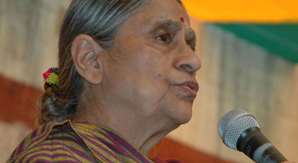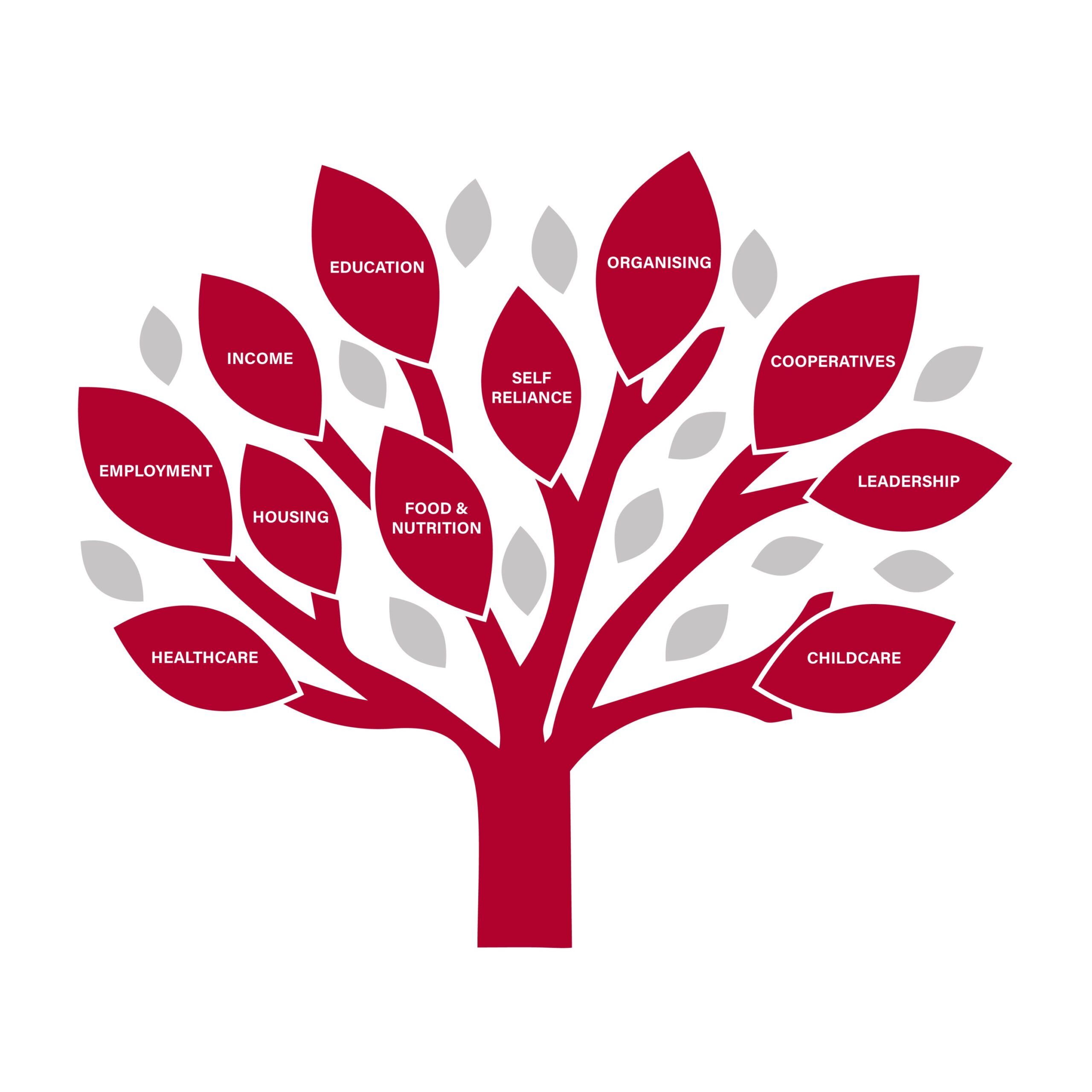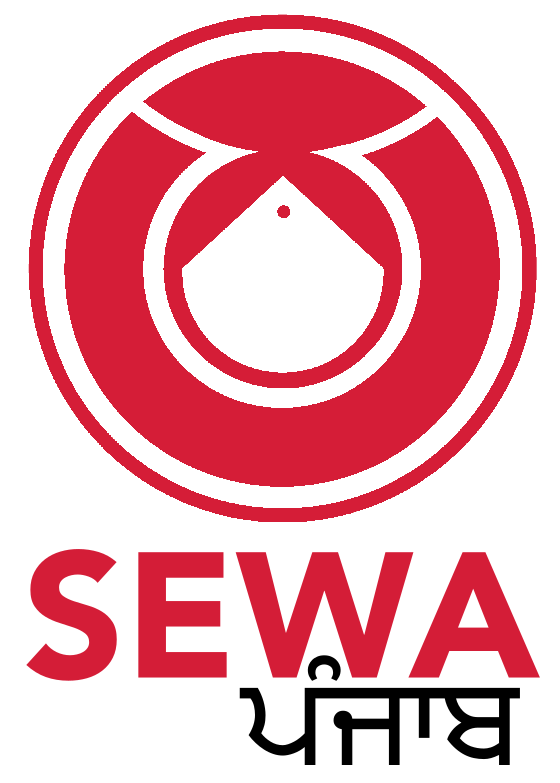
SEWA Movement
Self Employed Women’s Association (SEWA) is a globally recognized trade union and organization of women workers in the informal economy. It was started in 1972 by a group of women workers in Gujaratunder the leadership of Smt. Ela Bhat and is now a multi-state movement for their empowerment. Its vision is to work towards a just and equitable society whereinthe social, political, and economic rights of informal women workers are secured in a holistic manner. SEWA’s chief aim is to organize women workers to achieve the following goals:
- Full employment: jobs that provide economic security, food security, and social security.
- Self-reliance: economic self–sufficiency and equitable roles in the decision-making process
It is through the strategy of “struggle and development” that SEWA works towards these goals. The struggle is against the constraints imposed on women workers by society and the economy, while the development activities strengthen women’s bargaining power and offer them new alternatives. Practically, the strategy is carried out through the joint action of unions and cooperatives.
To read the history of the SEWA, visit –http://www.sewa.org/About_Us_History.asp

SEWA’s Philosophical Roots
“Gandhi ji’s principles of economics were simplicity, non-violence, dignity of labour and human values. His method was of struggle combined with constructive work, ,that is, the workers demand their labour rights, and also do constructive activities to build a peaceful society. SEWA has striven to follow these principles and values and has been able to stand firm in the labour movement”. – Smt. Ela Bhatt, founder of SEWA on SEWA’s philosophy
The Eleven Points of SEWA

SEWA’s development programs work together to address the systemic and chronic economic and social barriers that women in the informal sector face. SEWA’s holistic approach to development works towards ‘Eleven Points’. Once these Eleven Points are fully achieved, women will attain self-reliance and full employment.
| 1. Full Employment | 2. Sustained Income | 3. Nutritious Food | 4. Healthcare |
| 5. Housing | 6. Childcare | 7. Asset Creation | 8. Organized Strength |
| 9. Self-Reliance | 10. Leadership | 11. Education | |
